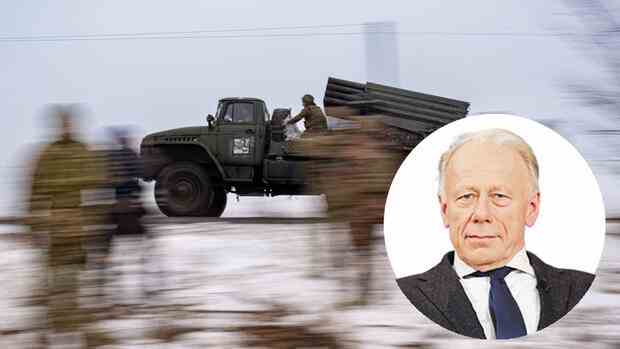Jürgen Trittin is foreign policy spokesman for the Alliance 90/The Greens parliamentary group in the Bundestag.
For a long time, the Munich Security Conference was a place of controversial geostrategic discussions. This time it was staged more nostalgically as a military science conference, as a self-assurance of a West that never really existed. The problem wasn’t those who were invited, like Russia’s Foreign Minister Sergei Lavrov. The problem was the attitude of those present. Munich was bursting with false self-confidence.
The speech by Kamala Harris was an example of this. The US Vice President called for an end to impunity for war crimes – and concealed that the US is blocking all attempts by the International Criminal Court to prosecute crimes committed by Americans in Iraq and Afghanistan.
It is this double standard with which the US and Europe are weakening their position in the world. Above all, Harris emphasized that the US would support Ukraine “as long as it takes” – while government officials in Washington scattered that aid could not be provided indefinitely.
In fact, the debate about how long is “long” has long since begun. It should not have been left out of Chancellor Olaf Scholz’s most recent talks with US President Joe Biden – especially since China has signaled that it has no interest in an endless war.
This becomes clearest at the point in Beijing’s position paper of February 24, where concerns about global supply chains are formulated. The goal set by the People’s Congress that the economy should grow by around five percent this year takes precedence over “boundless” friendship with Russia.
The help is not unconditional
The assurances of the Americans and Europeans that Kiev alone will decide when negotiations with Moscow are to be held are, at best, half true. Because without material help from the West, it would have been impossible for Ukraine to gain land, without this support Ukraine would not be able to militarily counter Russia’s war of attrition.
The fact that the USA and Europe provide financial, military and humanitarian aid is in their own security interests. Because the desire for further military adventures must be taken away from the aggressor Vladimir Putin. Nevertheless, the aid is not unconditional, at least from the point of view of the USA and Germany. The condition is that NATO does not get into a military confrontation with Russia and military support for Ukraine is only provided jointly within the alliance.
Global Challenges – idea and regular authors
The help is obviously limited in time. Donald Trump’s acclaimed performance in front of right-wing conservatives in the state of Maryland makes it clear that the US Republicans are making support for Ukraine a top issue in the election campaign – the Democrats, on the other hand, would hardly want to be accused of “wasting” money in distant Ukraine home in the USA is missing.
Those were exactly the signals from the US administration that accompanied Harris’ speech in Munich. As the war progresses, Biden will have an important say.
Putin must not achieve his maximum goals
All of this also has consequences for Germany. One of the reasons the chancellor is so stubborn about US involvement in main battle tank supplies is the risk of Trumpism returning to power in the US. With “tanks on the ground” it should at least be more difficult for the USA to completely withdraw from the front of support for Ukraine.
Contrary to what the left-wing politician Sahra Wagenknecht is demanding, there will be no quick end to the fighting. Russia has already announced a bloody spring offensive. But with the coming autumn, the USA, China and also Europe will increase the pressure to end the hostilities. Germany should rise to this challenge.
There will only be an end to the hostilities under two conditions: that Putin does not achieve his maximum military goals and that Russia is isolated internationally, including from China, India, Brazil and South Africa. Europe should urge China to actually enforce the demilitarization of the area around the Zaporizhia nuclear power plant, as demanded by Beijing from Moscow. The export of grain from Ukraine was to be intensified, as was the exchange of prisoners of war. Brazil’s offer to act as a mediator should be heeded and not dismissed too hastily.
All of this would be steps towards the goal of being able to negotiate an end to the hostilities – even if this end would not mean a ceasefire or even a peace treaty. For Germany, an end to hostilities cannot mean the end of aid to Ukraine. Ukraine needs reliable security guarantees. The Europeans and above all the Germans will have to pay for such guarantees and for bringing Ukraine closer to the EU – no matter who is next in the White House.
The author:
Jurgen Trittin is the foreign policy spokesman for the Bündnis 90/Die Grünen parliamentary group in the Bundestag.
More: Putin must be forced to make peace
